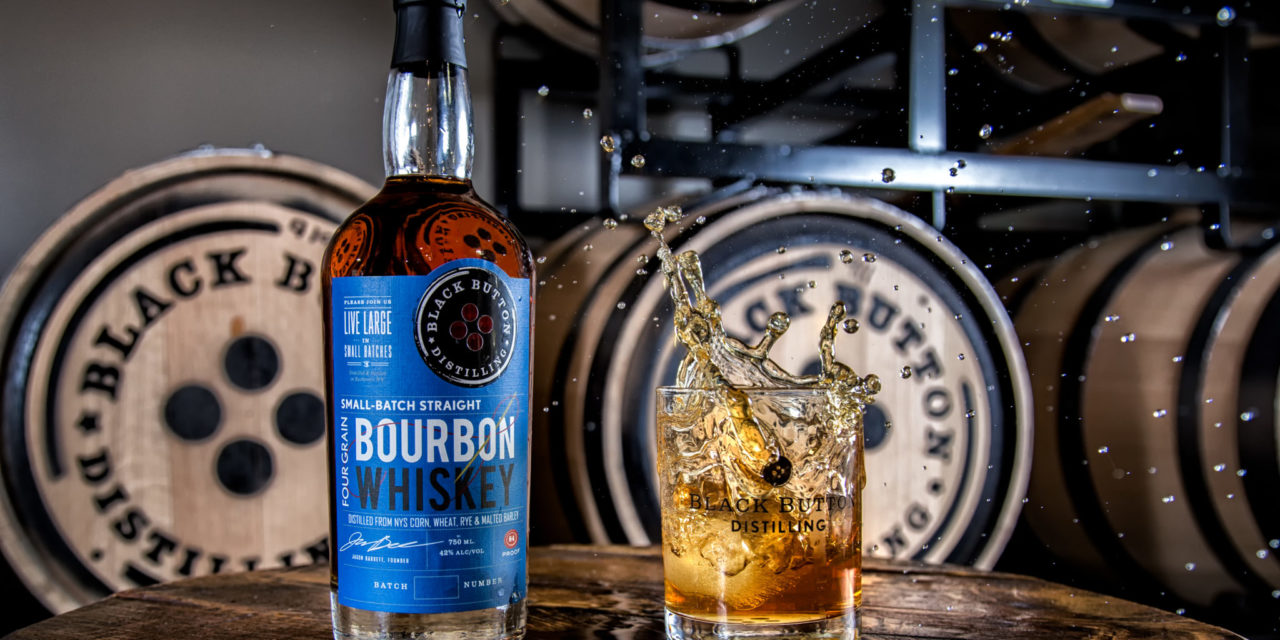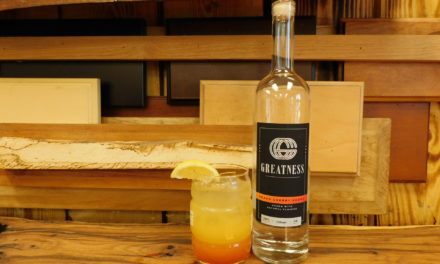Since launching Black Button Distilling in Rochester, N.Y., in 2012, founder Jason Barrett has purchased grain for bourbon and rye from a 2,600-acre farm that’s been in the same family since 1843. “I’ve been a big believer that better inputs make for a better output,” he says. “A good whiskey is grown, not made.”

Owning your own supply chain can greatly reduce the time between harvesting and processing. [Photo courtesy Black Button Distilling]
A year ago, Barrett says, he didn’t know that nearly 50 juniper varieties existed. He knows all about that now, as well as that each can bring a different taste to gin. He’s hoping to launch a line of single-juniper gins to highlight the differences, just as some brewers have been releasing single-hop beers.
The farm also lets him raise his own honey (fortuitously, his sister is completing her doctorate in entomology) with plans to manage the farm’s meadow for bees. They also have a stand of mature white oak, which he’s quarter-sawing and air-drying to supply some of the staves for their barrels.
In some ways, Black Button’s farm acquisition was driven by geographic happenstance. New York strongly encourages craft distillers to support local farms through significant tax advantages. (Distillers who source at least 75 percent of their ingredients from New York farms can qualify.) That’s been a boon for local farmers, as well as distillers who’ve embraced farm-to-glass production, including Hillrock Estate Distillery (in Ancram), Gardiner Liquid Mercantile (Gardiner), and Harvest Spirits Farm Distillery (Valatie).
Even those in states with less generous tax breaks can benefit from having their own farm. By reducing the middlemen, Barrett says, the costs of producing their own supplies isn’t far out of line from what they’d spend otherwise, at least for juniper, coriander, and honey. But with a caveat: He admits owning a farm makes sense mostly for distillers specializing in fruit-based products, such as eaux-de-vie and brandies.
When fermenting apples, grapes, or berries, the timing of the harvest can significantly influence both the yield and taste of the final product. That’s hard to control when buying through wholesalers or even from a local farmer. Another important factor: owning your own supply chain can greatly reduce the time between harvesting and processing, which is also critical to avoid having the sugar degrade before fermentation. “If you want the highest quality brandy you need almost an instantaneous process,” Barrett says.
Full control is less important in making whiskey, in which the timing of the grain harvest and the distance from the fields isn’t as crucial. And grains are subject to commodity pricing, which favors producers who can scale up. “With grain, the economies of scale are very different,” Barrett says. “It’s to the point that to be cost effective it has to be harvested en masse, with big equipment on large tracts of land.” Without vastly expanding farm acreage, he couldn’t hope to compete with even the family farm down the road. Black Button plans to continue sourcing grain with its current farmers.
Another advantages of having your own farm? No need to debate the definition of “craft.” When distillers inform consumers that they own and control ingredients from the field to the bottling line, it conveys instantly that this is true craft, visible for all to see.











